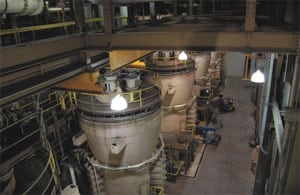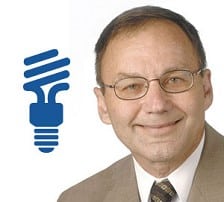2012 in Preview: Energy & Utilities
Utilities board responds to new federal regulations
New federal regulations will make 2012 a busy year for the Iowa Utilities Board (IUB), board Chair Libby Jacobs said.
“There has been a lot of activity coming out of Washington, D.C., on a variety of fronts,” Jacobs said. Those regulation changes will affect Iowa companies in each of the three areas the IUB regulates: telecommunications, energy and environmental. The changes have prompted the IUB to issue several notices of inquiry to gather input from the companies about how they may be affected by the new regulations.

Considerable changes are also ahead for coal-fired power plants. The U.S. Environmental Protection Agency is working on four separate rules that will affect those plants, among them new standards issued in December that will require generating companies to install technology to further reduce their output of toxic air pollutants. Industry representatives have opposed the new regulations, saying they will force the closure of a large number of power plants.
Additionally, “because there are only a finite number of manufacturers that can put the plants into compliance, you may see a real scramble and companies asking for waivers because they can’t get the work done in the timeframe needed,” Jacobs said.
In energy regulation, a new Federal Energy Regulatory Commission order approved in July 2011 requires greater coordination between local and regional electrical transmission planning processes. Transmission companies in neighboring planning regions also must coordinate to determine if there are more cost-effective solutions to their mutual transmission needs. “It’s really encouraging all the states to work together,” Jacobs said.
Higher electric rates?
Electricity rates for MidAmerican Energy Co. customers in Iowa could increase by 3 to 4 percent this year, the first upward rate adjustment in 16 years. The Des Moines-based utility company said higher regulatory and fuel costs were major factors in seeking a rate adjustment.

Interstate Power and Light Co. (IPL) does not plan to file for an increase in its base electric rates through 2013, as part of a three-year base-rate freeze. In return for IPL agreeing to a rate freeze in 2010, the IUB approved a rider authorizing the company to adjust its customer bills monthly based on actual fuel and regional transmission costs.
IUB Chair Libby Jacobs said that several utility companies’ long-term coal transportation contracts are expiring this year, which will likely bring more rate cases before the board.
“The cost of delivering coal has increased dramatically in the past few years,” she said. “But we also have to remember that natural gas is at near-record lows. I think that’s helped to offset the cost of other fuels.”
MidAmerican Energy has more than 513,000 residential customers and more than 52,000 commercial and industrial accounts in Iowa. The company said its retail electric rates, which average 6 cents per kilowatt-hour, are approximately 40 percent lower than the national average for investor-owned utilities and the sixth-lowest nationally.










